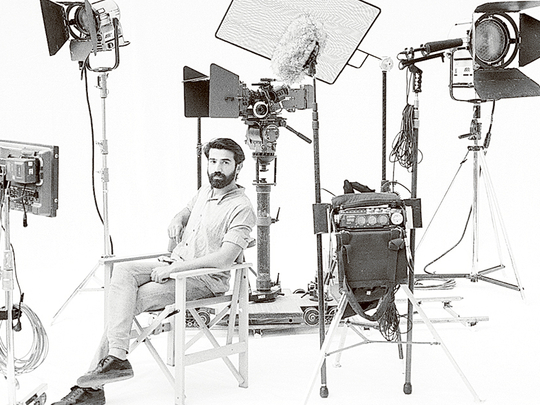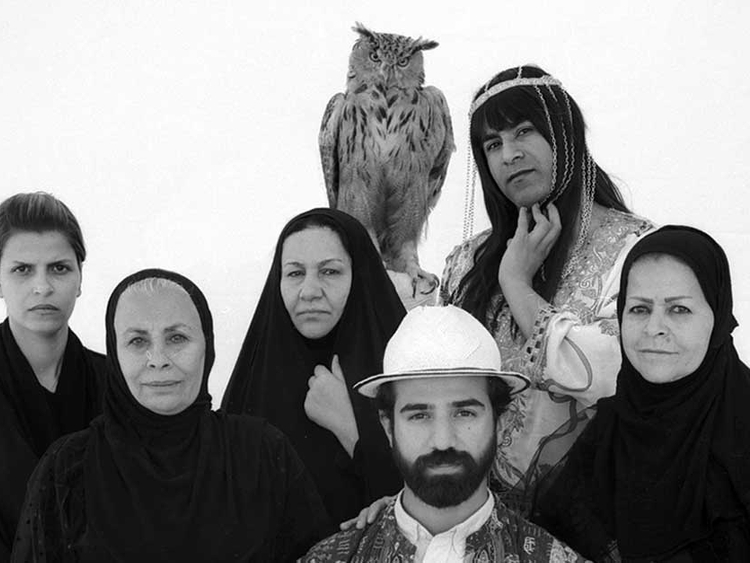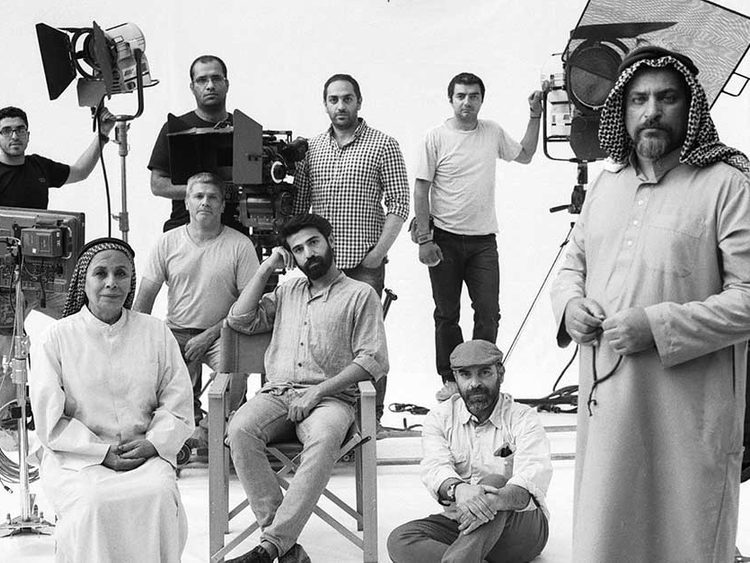
Around the same time last year, a feature film by Emirati director Abdullah Al Kaabi popped up on the list of dramas to premiere at the Dubai International Film Festival (Diff). The film immediately garnered a lot of interest, mostly because Al Kaabi had been keeping such a low profile ever since his much-publicised debut short film, The Philosopher, in 2010, starring acclaimed French actor Jean Reno.
But a few days before the festival, the film, Only Men Go to the Grave, suddenly disappeared from all lists. As festival organisers fumbled to come with an explanation, many thought perhaps Al Kaabi’s film had some wires crossed along the way. Was it the content? Was it the title? What really happened?
“I was just not ready,” Al Kaabi explains. “I didn’t really finish the movie in time. I thought I did, then I had a change of heart. I wasn’t happy with the sound. And I didn’t want to rush it. It’s my first feature film and I wanted to take my time until I was ready.”
Making the decision was not easy, he says.
“They’d already printed all the catalogues and I felt really bad. But Diff was really understanding because at the end of the day, they want what’s best for the filmmaker.”
Only Men Go to the Grave makes it world premiere on December 10 at Diff. And Al Kaabi says he knows it’s going to ruffle a few feathers. Set within a Khaleeji family, the story explores, among other themes, an intimate relationship between two women.
But it’s all in the way you tell it, says Al Kaabi.
“It’s not the story that’s the issue, it’s the way you tackle it. I tackled it, bearing in mind that I’m going to show it in our community, in this part of the world,” he says. “In the end it’s a story. There’s no nudity, there’s no pornography, there’s no violence. There’s just is a lot of silence. And that’s the power of cinema. You can open a dialogue without making anyone feel uncomfortable.”
Shot entirely in the south of Iran where Al Kaabi spent the last five years, he hopes Diff audiences will see the film beyond its premise and discover that it really is a film about love and peace.
“My film echoes a strong message to the international community: Art only understands one thing and that’s peace,” he says. “I hope these values come across and brings people together despite their nationalities.”
The 29-year-old describes the process of making this film as “transformative”.
“I spent a lot of time with Arab-Iranians and I’ve always wanted to explore their culture,” he says. “But the entire crew was from Iran, so I had to learn Farsi. Three of my actresses are from Iraq, making it the first production between Iraqi and Iranian actresses, directed by an Emirati. That was the beauty of it.”
The decision to shoot in Iran was financial, he says.
“Trying to get the film financed was a disaster,” he says. “I had to shoot in Iran because the cost factor was much cheaper and the crew much more accomplished. It just make sense.”
While there’s been support from “here and there”, Al Kaabi, who did not want to reveal how much he spent, says much of the film was self-financed.
“I’m still paying it off now, all my savings are gone and I had to sell a property,” he admits. “But I come from the school of filmmaking where we believe that for something great to happen, some form of sacrifice is necessary.”
He credits his executive producer Farshad Mahoutforoush, a UAE-based Iranian art collector, for helping him see the film through.
“With personal finance comes creative freedom. And I am 100 per cent sure it wouldn’t have gotten financed otherwise,” says Al Kaabi. “It’s not just a matter of whether you’re getting the money or not. It’s also who’s giving me that money.”
Five years was a long time ago, he says, looking back at The Philospher, and his follow-up, the short film Koshk, which won a number of awards at the Abu Dhabi Film Festival in 2014.
“I was so much younger. I wasn’t sure about myself. I didn’t even know if I was a real filmmaker,” he says laughing. “I still don’t, but my confidence has solidified. I am finding myself. I am taking more risks. I’ve also evolved.”
He’s not picked up another project yet, and is focusing on getting his feature film out there.
“Right now I’m really focused on this movie getting seen. We don’t have a distributor yet. I hope after the festival, it will be picked up. We make movies for people to see so it will be great to have it picked up,” he says.
Only Men go to the Grave initially had a different title, Girls in the Know. The name was changed in memory of Al Kaabi’s close friend, the Iranian filmmaker Hamideh Razavi, who tragically died in a car accident last year, one week after she saw his film.
“After watching the film, she noticed the burial scene in the movie had only men, according to some Sunni customs. She asked me, ‘Why are only men at the funeral?’” recalls Al Kaabi. “I explained to her and she said, ‘That’s what you should call the movie!’
“I thought it suited the theme of the movie and the message we were trying to convey beautifully. So we changed it.”
The message, he adds, is for everyone to have an open mind.
“It’s only my first feature, but I’ve learnt that as a filmmaker I have the power to inspire people and open their eyes to things. That’s the gift,” he says. “I keep reminding myself how lucky I am to have this opportunity to be able to make people learn and travel and enjoy through the power of cinema.”
Don’t miss it
Only Men Go to the Grave screens at the Souk Madinat Theatre on December 10 at 10.30pm; and on December 12 at 10.15pm at Mall of the Emirates. For tickets and schedules go to diff.ae
ONLY MEN GO THE GRAVE: THE STORY
The film’s story revolves around a blind mother that calls her two daughters to come in for a confession about a secret that she’s been keeping. Her daughters come, but while she tells them her story, she trips, falls out of the window and dies. The movie is about finding out what she wanted to say. As the daughters start meeting people from their mother’s life, secrets start to unravel.











